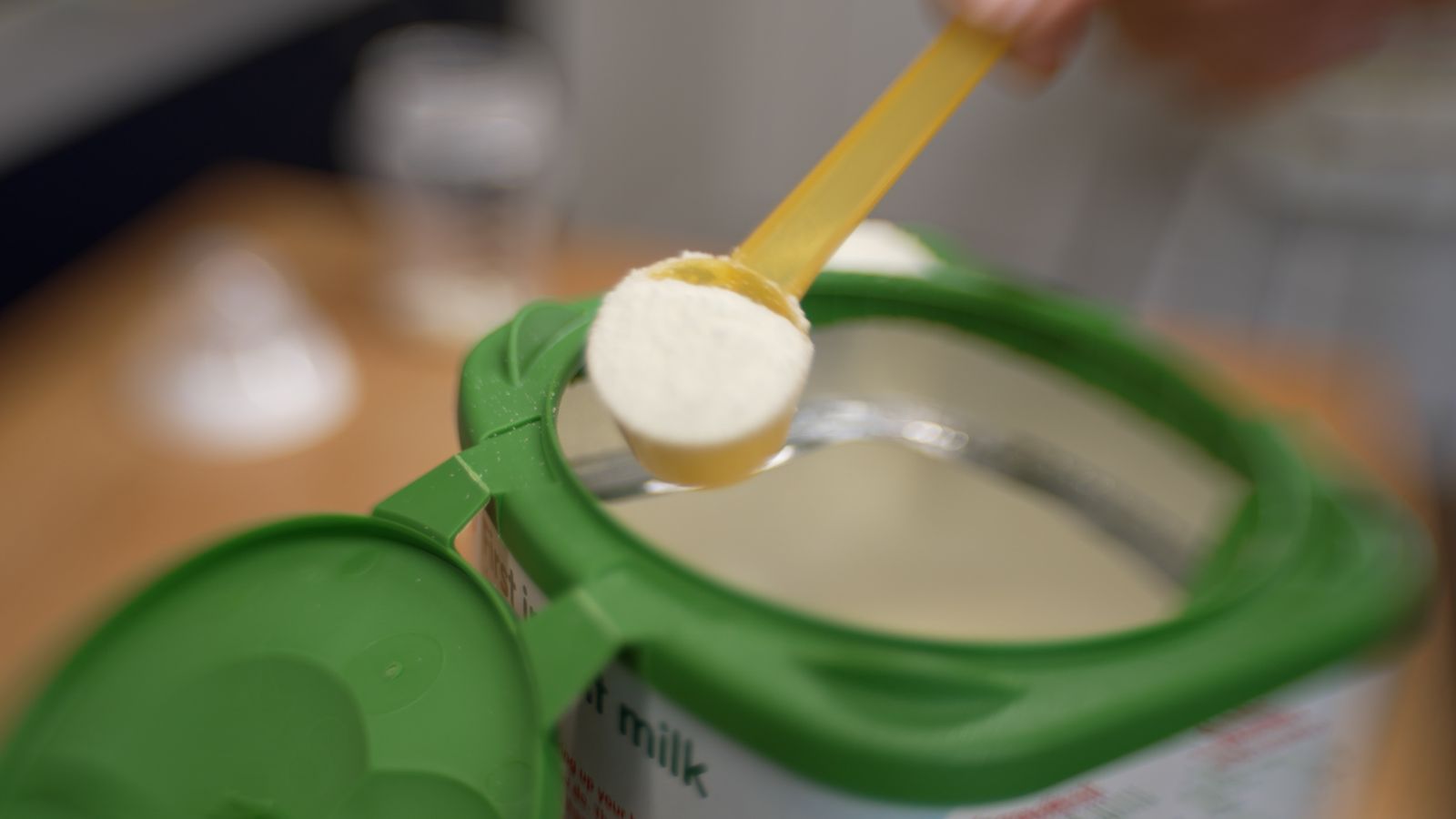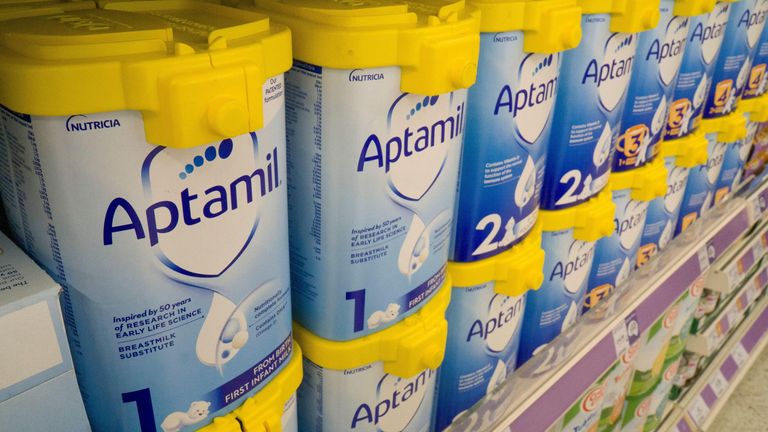The infant formula sector requires a transformation to support families who are finding it challenging to manage its costs, as stated by the UK’s competition authority.
There are “few motivations” for the industry to engage in price competition, resulting in adverse effects for parents dealing with elevated costs, according to a preliminary report from the Competition and Markets Authority (CMA).
Previously, the watchdog indicated a 25% surge in prices over the last two years, with only two businesses, Nestle and Danone, dominating 85% of the market.
Among its suggestions is the need for improved public health communication and clearer choices for parents navigating various brands.
The CMA also confirmed that it is evaluating the potential impact of a price ceiling but is not currently advocating for one.
The report revealed: “The CMA has tentatively found that—unlike in numerous other grocery sectors—there is minimal urgency for producers or retailers to protect consumers from rising manufacturing costs, which have been swiftly passed on in full.”
Sarah Cardell, the CEO of the CMA, remarked: “This market is significant and distinct.”
“We are alarmed that companies are not fiercely competing on prices, leaving many parents—who might be selecting infant formula under difficult circumstances and with insufficient information—choosing pricier options, associating higher costs with superior quality for their child.”
“We have pinpointed potential avenues for change, and now we aim to collaborate closely with governments across the UK, along with other stakeholders, as we refine our final recommendations.”
The CMA anticipates releasing its final report in February. Earlier this year, the regulator announced that it would review prices of baby formula amidst concerns that they remain at “historically elevated” levels.
Its decision to initiate a market examination empowered it to mandate suppliers to reveal comprehensive information on pricing and related practices.
Previously, the CMA depended on voluntary disclosures from suppliers.
In response to the findings of the interim report, a spokesperson for Danone UK stated: “We are diligently considering the CMA’s preliminary report and will communicate with the CMA as it formulates its finalized conclusions and recommendations. From Danone’s perspective, the UK formula milk market is vibrant and competitive, and we shall persist in working cooperatively to offer continued value to parents, supported by ongoing investment in leading research and innovation.”
In 2023, the World Health Organization (WHO) called for government action regarding skyrocketing baby formula prices, which it claimed were “taking advantage” of families in the UK.
In a dialogue with Sky News, WHO criticized multinational producers for “manipulating prices” to amplify profits from baby formula.
At that time, research revealed that formula prices in the UK had surged by 24% over the last two years, with the lowest-cost brands experiencing a staggering 45% increase during that same timeframe.
WHO is urging governments to intervene and alleviate the financial strain on struggling families by identifying methods to reduce store prices.
In a statement, the leader of the infant feeding charity Feed remarked that the CMA’s latest study was a welcomed initiative.
“The escalating expenses of infant formula in recent years have disproportionately affected those who can least afford it. We recognize that some mothers are compelled to make sacrifices to buy premium brands under the belief that these are optimal for their infants, and guilt related to not breastfeeding can significantly influence such purchasing choices,” said Clare Murphy.
“This must come to an end.”
Ultimately, Ms. Murphy emphasized that these proposed changes alone “cannot remedy a flawed system that fails to adequately support both women and their infants.”
“We require an infant feeding framework that accurately reflects the real-life experiences of families… We urge the government to
act.”
Sky News has earlier highlighted the drastic actions some parents are resorting to in order to provide for their infants, such as pilfering formula, acquiring it from the black market, diluting bottles, or opting for condensed milk as an alternative. Former Prime Minister Rishi Sunak characterized the situation as “regrettable” at that moment.
Laurence Grummer-Strawn, a technical officer for the WHO, remarked to Sky News, “It’s alarming to witness a wealthy nation like the UK encountering scenarios where mothers struggle to provide nourishment for their babies.”
When prompted whether this circumstance amounted to exploitation, Grummer-Strawn affirmed: “Indeed, we can assert that these prices are being forced onto consumers, compelling them to pay extremely elevated costs.”
A multitude of supermarkets and brands have already slashed prices for their baby milk offerings in reaction to the mounting indignation.
In January 2024, Asda and Tesco joined Sainsbury’s and Iceland in reducing the price of Aptamil baby formula.
Asda also announced it would allow shoppers to redeem rewards scheme vouchers for baby formula for the first time.
Richard Walker, the executive chairman of Iceland Foods, stated: “We hold a moral responsibility to act.”
“The Prime Minister has expressed his sadness regarding families diluting formula to extend its usage, but once again these are merely words and Iceland is taking definitive steps today.”
Receive breaking news alerts on your smartphone or tablet via the Sky News app. You can also keep informed by following @SkyNews on X or by subscribing to our YouTube channel.



